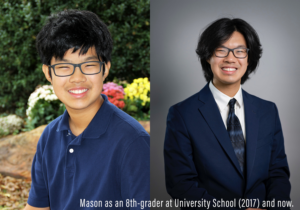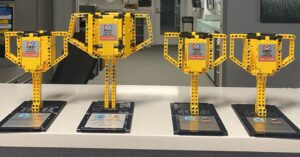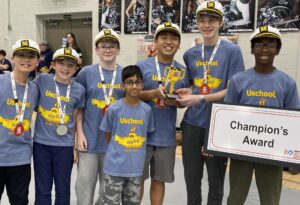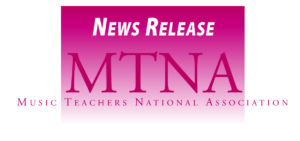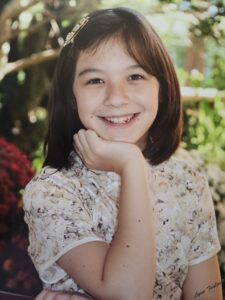
A student from The University of Tulsa’s Engineering and Computer Science (ECS) is demonstrating the power of hands-on learning, community engagement, and the college’s mission – right here in Tulsa.
Chris Hopton, an UTulsa ECS graduate, partnered with Kevin Vincent, a STEM teacher at University School, to develop a new computer engineering elective for eighth grade students. The course introduces foundational computer science concepts through hands-on lab work and real-world applications.
The collaboration began when Hopton agreed to tutor seventh and eighth graders a few hours each week. But the partnership quickly evolved into something more impactful when they discovered they had a mutual interest in building a new challenging course for computer engineering.
“Near the end of that semester we talked about pushing the kids, which led to creating a computer engineering course for eighth graders,” said Hopton. “Kevin constructed lesson plans over the summer, and I was in charge of developing labs for the students.”
The duo worked together to cross-check lessons and finalize the curriculum. Once course development was finalized, interested students enrolled and began working through challenging workshops that both reinforced earlier computer science lessons and introduced new hardware and software concepts.
“Once the course started, Chris made a seamless transition from developer to teacher,” said Vincent. “He was well respected by the students and was able to interact with them at their level of expertise. He demonstrated a natural ability to teach, challenge, and motivate the students to learn more than they thought possible.”

Vincent emphasized that Hopton’s role was integral to the success of the course.
“Without Chris’s expertise, positive mindset, and development of quality lab exercises, we would not have been ready for the initial offering of the course,” Vincent said.
For Hopton, the project extended far beyond a service learning opportunity. It also helped him freshen up on courses he took during his freshman year. He double majored in electrical engineering and computer science, two skillsets that made him the right candidate.
“Without Kevin’s experience and encouragement, I do not think I would have ended up creating brand new courses,” said Hopton. “I’m glad I did. This gave more back to the community than tutoring alone could have.”
The students took notice, too.
“Without Chris and Mr. Vincent’s partnership, I do not think the class would have succeeded as well as it did,” the student said. “Having two teachers helped accelerate the troubleshooting process by a significant amount, allowing us to advance further in the lessons.”
Hopton’s initiative at University School showcases a core value of the College of Engineering & Computer Science: stewardship through community engagement.
“He made himself available,” said Hazem Refai, ECE endowed chair at UTulsa. “It felt good for him to develop real-world materials for the students. Helping Kevin, University School and the community is something Chris values and we all value here at the college.”
Through initiatives like this, UTulsa engineering students are putting their education into action, building relationships and making a difference in Tulsa and beyond.
